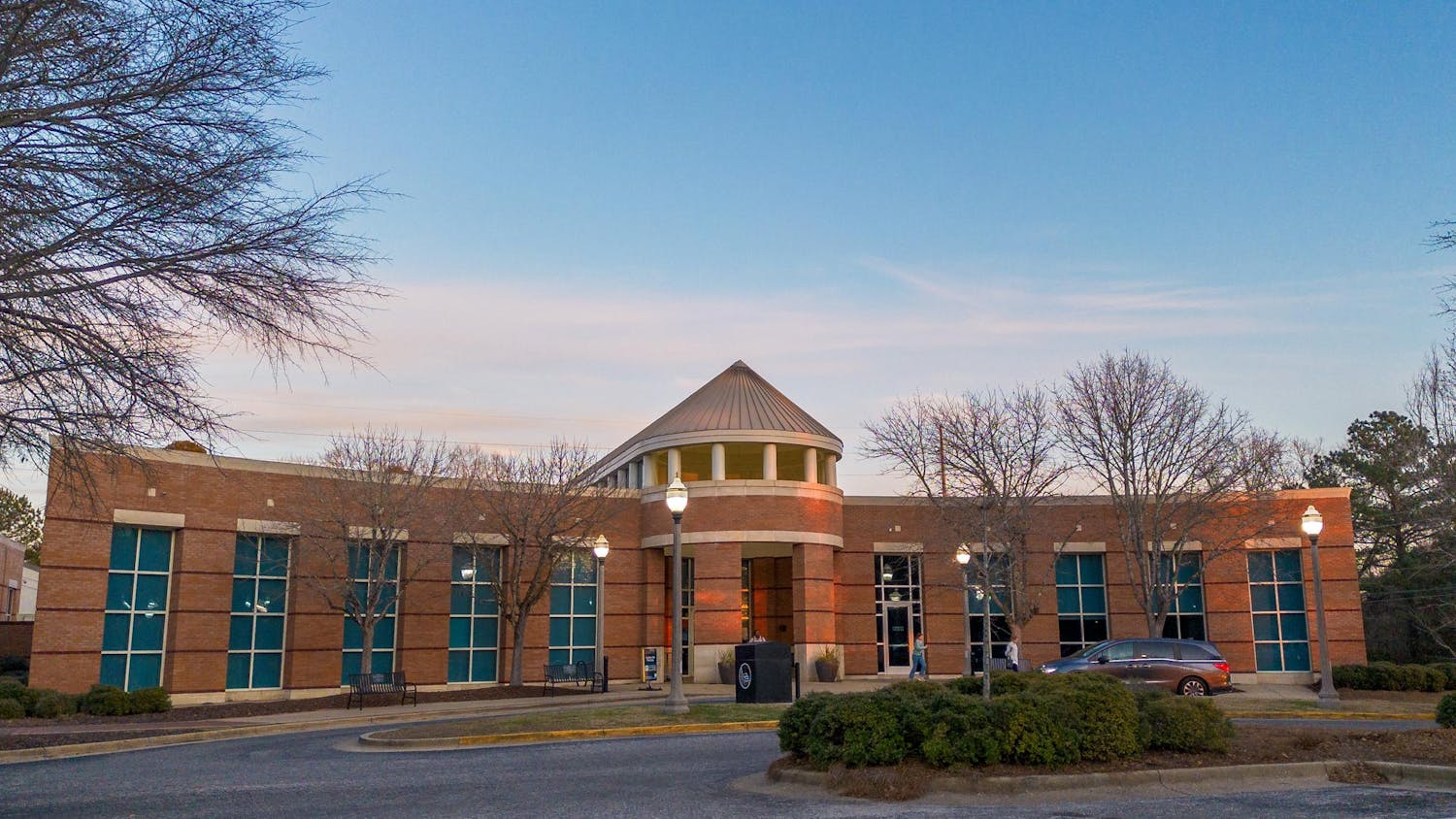One in eight U.S. women will develop invasive breast cancer during her lifetime, and approximately 231,840 new cases will be diagnosed in women by the end of 2015, according to the American Cancer Society.
Ashley Cunliffe, sophomore in elementary education, said she found a lump in her breast when she was in ninth grade.
When she was in high school, Cunliffe said she was on the cross country team, and knew something was wrong because it hurt every time she ran.
"I just remember the moment when I thought I couldn't run anymore was pretty much the lowest part," Cunliffe said. "I remember just thinking, 'Why me?'"
Cunliffe, who's a member of Kappa Alpha Theta at Auburn, said she told her sorority at chapter two weeks ago she found a clump of tiny cysts in her other breast this summer.
After finding her first lump in highschool, Cunliffe got an ultrasound and biopsy at the military base of her hometown, Navarre, Florida. The biopsy revealed the mass was non-cancerous.
She said the doctors told her she could remove the mass, but another mass, which could be cancerous, could grow in its place. Cunliffe and her family decided not to remove it.
Cunliffe said she told her soroity in hopes of raising awareness for breast cancer and said women should perform self breast exams every six months.
"You need to catch it as early on as possible, and then they can do something about it, but once it's been there for so long, it's kind of like tough luck at that point," Cunliffe said.
Cunliffe said she wanted to reach out to others who might be going through the same experience. She said after talking to her sorority, a freshman messaged her on Facebook and briefly told her she was experiencing the same thing.
Cunliffe will go to back to Gulf Breeze Hospital in December to get another ultrasound and see if the mass needs to be biopsied and if it is cancerous.
"Hopefully nothing has changed, but it seems like a let down every time I go in," Cunliffe said. "I'm just rolling with the punches at this point."
Auburn Undercover owner, Ronnie Sanders, said his wife, Becky, tested positive for the breast cancer gene, BRCA2, two years ago.
When Becky was 12 years old, Ronnie said her mother died, but the doctors couldn't figure out her medical records and the exact cause of death. He said they thought it could be breast or ovarian cancer.
Becky said she received a call in Target revealing she had the gene.
"I just started bawling," Becky said. "It hit me all at once that, 'Wow, I'm BRCA2 positive, and that means my mom was BRCA2 positive and that's why she died 20 years ago."
Mother of three children, Becky said she had a double mastectomy, which involves removing breast tissue and expanding the breast muscles, according to Ronnie.
She also said she had a hysterectomy removing her uterus.
Ronnie said support groups on Facebook helped Becky through the process.
Becky said her friends and family were her main support, and as people get older they need to monitor their health.
"No one's going to look after you," Becky said. "You have to look out for yourself."
Ronnie said his coaching background led him to make connections with breast cancer. He said he found out Clemson University's football coach, Dabo Swinney's, wife and her sister had the BRCA2 gene.
"There are people around here going through the same things that you are if you're going through this," Ronnie said. "There's a lot more people out there with it, than not."
Do you like this story? The Plainsman doesn't accept money from tuition or student fees, and we don't charge a subscription fee. But you can donate to support The Plainsman.




